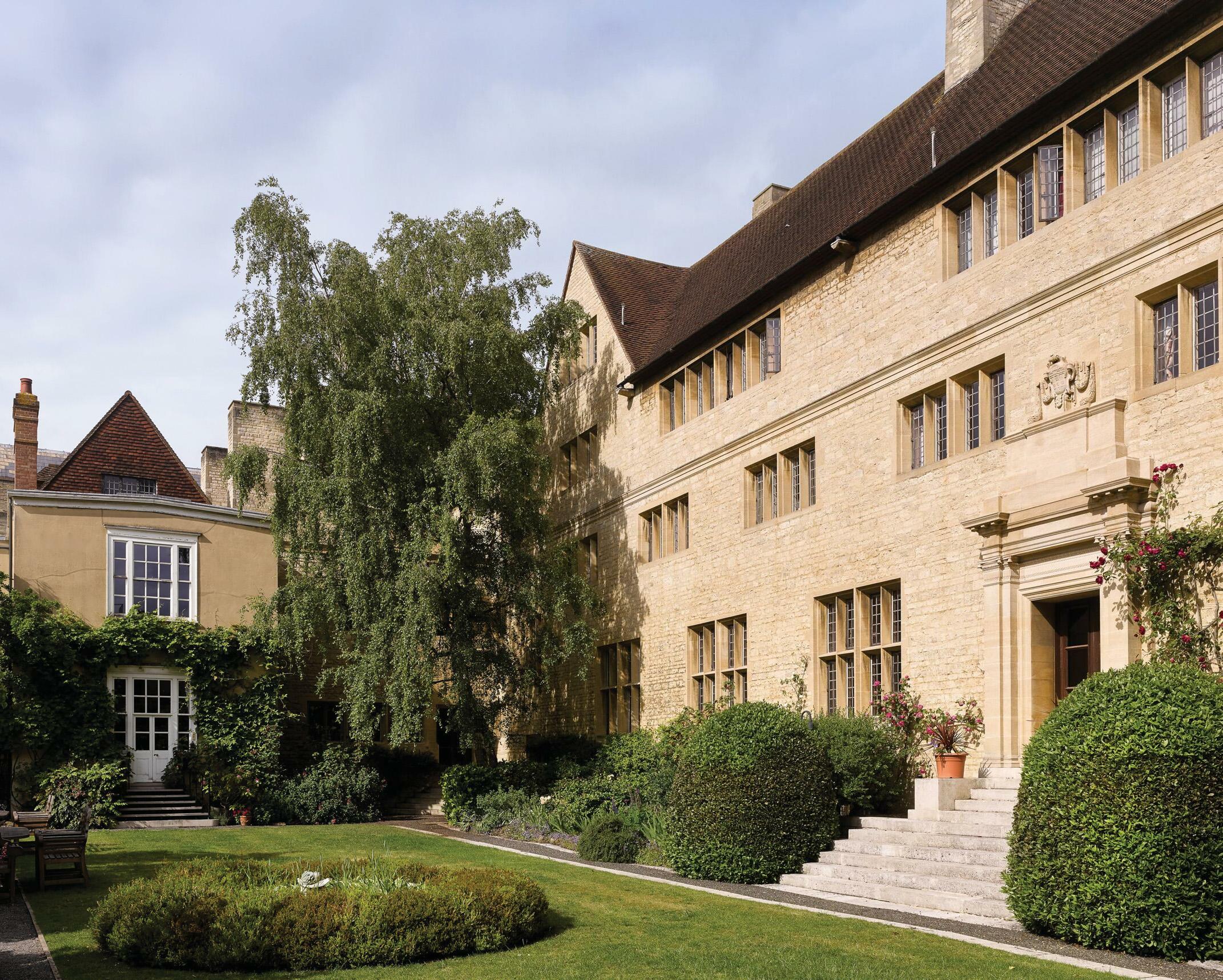Beneath the rose

WHY not ask me?' enquired Sir Edwin Lutyens, when Father Martin D'Arcy needed an architect for Campion Hall in Oxford. It was 1934 and Lutyens was then in his mid sixties, knighted and the most famous architect in the country, whose oeuvre ran to some 550 buildings. 'But, Ned, D'Arcy replied, 'you have the reputation of being most appallingly expensive.' Lutyens assured him that his fees would be minimal and that he would keep an eye on the cost. He thus entered the esoteric, socially glamorous world of Jesuit Oxford, where architectural austerity would be combined with high art to form a haunt for, among others, Evelyn Waugh. Lutyens told Sir John Rothenstein that he considered Campion Hall his best building.
Although Oxford’s doors had been open to men of all faiths since 1871, it was only at the end of the century that the English Hierarchy thought it safe for Roman Catholics to attend. First on the scene had been the Jesuits, who opened Pope’s Hall—named after its master Thomas Pope, Society of Jesus (SJ)—in 1896. It was a small establishment, next to the Lamb and Flag pub, which, by the 1930s, seemed inadequate both to the numbers of Catholics at the University and the image that D’Arcy wanted to project. D’Arcy, who had been teaching at Oxford since 1927, was Roman Catholicism’s leading public intellectual in the UK, a magnet for an intellectual and social elite: among those who converted were Evelyn Waugh and Graham Greene. A vivid description of him comes from the artist Stanley Parker: his etiolated face looked as if it was ‘wasted to the bone by the rarest and most exquisite emotions, seared with the imprint of the deepest thought, consumed, almost, by the inner fire which blazed and smouldered in his eyes’.
هذه القصة مأخوذة من طبعة April 05, 2023 من Country Life UK.
ابدأ النسخة التجريبية المجانية من Magzter GOLD لمدة 7 أيام للوصول إلى آلاف القصص المتميزة المنسقة وأكثر من 9,500 مجلة وصحيفة.
بالفعل مشترك ? تسجيل الدخول
هذه القصة مأخوذة من طبعة April 05, 2023 من Country Life UK.
ابدأ النسخة التجريبية المجانية من Magzter GOLD لمدة 7 أيام للوصول إلى آلاف القصص المتميزة المنسقة وأكثر من 9,500 مجلة وصحيفة.
بالفعل مشترك? تسجيل الدخول

All in the family
Carlo Bugatti believed that any object could be a work of art, paving the way for his children, elegant Rembrandt and genial Ettore, to sculpt supple, predatory panthers and craft automotive masterpieces. Charles Harris traces their lives
Flushed with desire
\"Here they are, dissolving in laughter at his random predicament, the damsel and the dripping baronet

A famously good show
From tiny spots of the soft yellow buttercup to towering tree ferns from Co Kerry, SW3 was filled with interest large and small, finds Tiffany Daneff

Going a ganging
The ancient custom of 'beating' willow wands around parish perimeters is still performed today—minus the medieval brutality

Classic good looks
One of the most photographed stands at last week’s Chelsea Flower Show was COUNTRY LIFE’s ‘outdoor drawing room’, a tranquil Italianate loggia designed by Isabella Worsley
Kiss like a bee
MOST people who care about the countryside are deeply alive to the current plight of bees in Britain; the collapse in numbers is partly as a result of pesticide use, partly loss of habitat.

Treasures of the East
East Anglia appears to be full of wonders, from carriage driving and an escaped puma to a Harrods pavilion and ancient forests, as these houses show

Throwing caution to the wind
Spring is the time to see the muscular and noble goshawk, usually as elusive as a ghost circling and swooping through the sky

The age of calamity
IT'S now more than 60 years since the publication of May McKisack’s classic account of the 14th century, which appeared in the acclaimed ‘Oxford History of England’ series of volumes.

Wanderer above the Sea of Fog by Caspar David Friedrich
Charlotte Mullins comments on Wanderer above the Sea of Fog
